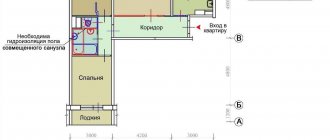So, the developer received the RVE and opened an appointment for the issuance of keys.
The transfer of the property is just around the corner, which means it’s time to learn about the top mistakes an equity holder makes when accepting an apartment in a new building by a specialist.
Do not sign documents with open dates.
Does the developer call for an inspection before receiving the RVE (permission to put the facility into operation)?
This means they will be pushing in an additional agreement on postponing the deadlines for the DDU, an apartment inspection certificate, an acceptance certificate and a notice of completion of construction with open dates.
Once you sign them, the developer will give them back after the RVE. True, if the developer is not conscientious, he will begin to extort a waiver of the penalty , otherwise he will not give up the deed you signed.
And no deed means no property.
Don't run ahead of the locomotive. After completion of construction:
- Don't call the developer's managers
- Don’t run to them to sign everything they give you
- Wait for a letter by Russian post about the readiness of the apartment for transfer
- Receive your shipment
- Call the manager
- Sign up for an appointment
- Come for an inspection
- Draw up a defect report
- Wait for them to be eliminated
- Accept housing according to the act
We do not respond to invitations from the developer via SMS/phone/email to pick up the keys to an apartment with or without finishing, otherwise you will receive 100-200 thousand rubles. less penalties .
Do not order acceptance of an apartment in a new building by a specialist.
This is up to 10 thousand rubles. to be thrown away, because the developer in 8 out of 10 cases does not eliminate the defects found. If it doesn’t eliminate it, then what’s the point of the receiver? Still, call a surveyor to draw up a repair plan. And he inspects the apartment for free.
Moreover, once you hand over the inspection report with defects to the developer, you will be in for a surprise. The developer will wait from 20 to 60 days and transfer the apartment unilaterally.
The fact is that according to the law on shared construction, you can only refuse to accept an apartment with significant defects . Therefore, an experienced developer leaves only minor defects. Because of them, he provokes you to draw up an inspection report, and you thereby open the door to a one-way transfer. What is its meaning? It reduces the DDU penalty by 2-4 times more.
In 95% of cases, the court is on the side of the developer in disputes about unilateral acts. He interprets the shareholder’s demand to correct minor defects as a way to make money from the developer - to accumulate a large penalty . Because minor defects do not interfere with the use of the apartment.
Therefore, acceptance of an apartment in a new building by a specialist is not only a waste of money, but also 100 - 200 thousand rubles. losses.
Don't spend money on a lawyer during your appointment. He is worse than an “acceptance specialist.”
The lawyer will come to the reception, wait until the receptionist finds defects, check the inspection report and charge you for 1 piece of paper.
But as a rule, there is nothing to check on a piece of paper. It is always drawn up correctly if it is signed by the shareholder and the developer.
Do not forgive significant defects to the developer. Cling to them with your teeth.
The main thing is to correspond with the builder by Russian post. And go to the reception only after an official invitation. This way you will collect an epic penalty. How does it accumulate step by step?
- Come to inspect the apartment
- Fix significant defects
- Drawing up an act with shortcomings
- Hand it over to the developer
- Wait at least 100 years for everything to be fixed
- Did you fix it? We are waiting for the second letter with an invitation to accept the apartment
- We receive a letter. Let's go. We accept
You probably think that in order to find significant defects, having an apartment in a new building inspected by a specialist certainly won’t hurt?
However, the secret is that even a schoolboy will find these defects. The essential ones are:
- no light
- no water
- no heat
- no ventilation
- the elevator does not work, and the apartment is above the 7th floor
- huge holes in the apartment
Will you find it yourself? Save the price of specialist services.
Don’t think that you are the smartest, you have come up with a way to avoid problems with the developer when accepting the apartment. They say that first I will accept the apartment according to the deed, and then I will collect a penalty.
Firstly, the judge will cut off the penalty of the shareholder with the acceptance certificate for 50-150 thousand rubles. more than without the act . The subtlety is that, according to the court, the developer fulfilled the obligations of the contract and therefore deserves relief.
Secondly, developers sleep and see that you file a claim as late as possible. For what?
The longer you fuss with the acceptance of an apartment in a new building by a specialist, the longer you choose a DDU lawyer, the less chance of payment. After all, the developer will not keep the money for eternity in order to serve it to you on a silver platter when you decide to go to trial.
Do you want to definitely get money after the trial, and not be left with a framed writ of execution? Go to court within the first 3 months of delay.
Do not draw with a pen on the acceptance certificate
Do not draw with a pen on the acceptance certificate that you do not agree with this and that. With such an act, the MFC will deny ownership rights. We'll have to go back to the developer and beg him to issue another deed.
Don’t listen to the developer’s tales about making an appointment in 3 months.
Have you received a letter stating that the property is ready for transfer? We have a maximum of 60 days to accept housing .
Because of this, we sign up for acceptance, and at the same time send a valuable letter with a list of attachments to the legal address of the developer about readiness to accept the apartment.
Letter - 100% protection against one-way transmission .
Do not sign the transfer and acceptance certificate without the signature of the developer.
Managers will sing to you that His Majesty does not sign in advance. Once they collect a bunch of acts, then they will stage it. But ask yourself the question: “Will they return the act later?”
If not, then you will have to spend 50-100 thousand rubles. to recognize ownership of an apartment through the court or waive the DDU penalty.
Don't sign anything without checking.
Call a lawyer for a consultation. Often the developer slips a bunch of documents into the office.
Do not count on a liquidated damages claim at the time of acceptance.
Do not count on a claim for a penalty when a specialist takes over an apartment in a new building. A normal developer does not pay money. He only pretends to think.
Do you want a penalty through court? File a claim, and at the same time file a claim. This way you will save up to 60 days on a fake review of a claim by the developer .
Don’t start a war with the developer over every point in the transfer and acceptance certificate.
According to the act, you still cannot waive your rights, so we turn a blind eye to “there are no financial or other claims.”
Still want to delete? Tell the developer. He will most likely propose a new act in a couple of weeks.
You will not find that the developer will change your debt for meters to 350 thousand rubles. for your debt 600 thousand rubles. penalties.
They know that the court will award 100-200 thousand rubles for this penalty. already with a fine. Half of it comes from expenses. Therefore, the developer will not even lift a finger to agree on barter.
Don't forget about the finishing. If the developer transfers the apartment and finishing according to the DDU, then you draw up two acts. The first is the reception of the apartment, the second is the reception of finishing.
Do not agree? Are you telling the developer that you won’t sign the acceptance certificate for an apartment without finishing? Replenish the army of shareholders with unilateral acts, who are like peas against the wall.
We hope that this article will help you beat the developer and save on the services of accepting an apartment in a new building by a specialist.
The maximum service you need is an independent construction forensic examination for the court. She will recover damages for defects in the apartment with a coefficient of 3.5
Source: rsokolova.com
Instructions: acceptance of an apartment in a new building - 7 steps
Challenging a unilateral act of acceptance and transfer of an apartment
Before carrying out repairs, it is necessary to carry out a technical examination, in which it is necessary to record the shortcomings in the apartment and calculate the cost of eliminating the shortcomings. Next, you file a lawsuit against the developer in court. Your claims will be to challenge the unilateral act and to recover in your favor the costs necessary to eliminate the identified deficiencies. If the developer did not transfer the apartment to you on time, then the collection of the penalty due to you under 214-FZ can be added to the claims. Repairs must be carried out officially with the conclusion of an agreement and with the official making of all payments. Well, or at least, only the contract and payments to eliminate the identified deficiencies should be official. You can carry out other repair work as you need it. By the time the decision is made, most likely your apartment will have already been renovated and you will have documentary evidence of how much you actually spent on eliminating the identified deficiencies. These documents will need to be attached to the materials of the court case.
Drawing up an inspection report
An inspection report (or a defect report) is a document that records all the shortcomings and shortcomings discovered during the inspection. Based on it, a decision may be made to carry out repair and restoration work by the developer. The construction company must accept the document, even if it does not agree with the claims and requirements. And the correctness of one or the other side is determined by an independent expert.
Ideally, a sample of the defect report should be provided by a representative of the developer. But often this condition is not met. In such cases, the document is drawn up in free form. It must contain the following data:
- address of the property;
- grounds for drawing up a defective act;
- list of shortcomings;
- deadline for eliminating defects;
- signature of the shareholder and the developer.
The document is drawn up in two copies: one for the buyer, the second for the developer. After the defective deed is signed by both parties, it is sometimes sent to an independent expert.
The developer must carry out repair work if the following standards are not met in the apartment:
- uneven walls, maximum permissible deviation – 3 mm per 1 m;
- the presence of cracks and roughness on surfaces finished with finishing plaster (the presence of such defects indicates the use of low-quality materials or a violation of building codes);
- supporting structures have visible gaps;
- slopes and other angles of walls and surfaces are not 90 degrees.
If you buy other real estate objects along with the apartment (garage, swimming pool, parking space), do not forget to inspect them too. All records should be as detailed as possible so that later the expert and the developer do not have any doubts or disagreements.
Buyers do not check public places. Acceptance of entrances, halls and other objects of this type is the competence of a special commission.
Apartment acceptance certificate
Yes, the construction company built the house and put it into operation, but how well was the work carried out? Practice shows that when inspecting a new home, the developer’s clients are sometimes not very happy with the way the finishing is done, how the utilities work, and also notice other shortcomings. While the contract (if we take into account the standard shared participation agreement, which stipulates that the work must be performed not only taking into account accepted building codes and regulations, but also be of adequate quality) excludes the possibility of such shortcomings. That is, it turns out that the developer did not fully fulfill his obligations.
RDI Commercial Director Valery Kuznetsov answers:
If the developer has received permission to enter, then the object is technically connected to external heat supply networks. Otherwise, the house simply would not have been put into operation. But due to some shortcomings, the management company might not accept it on its balance sheet. And for this reason, it probably delays the release of heat. Thus, on this issue, the developer has probably fulfilled his obligations to the shareholder and formally has the right to transfer the apartment to him. The buyer has the right not to accept it, and if he receives a unilateral act, to apply to the court to cancel it.
As for the second question, often the material of interior partitions is not indicated in the DDU. If this is the case in your situation, then there are no formal grounds for making claims to the developer. Preliminary materials, such as booklets, and especially information conveyed verbally, are not a public offer. If the material of the interior partitions is nevertheless specified in the DDU and the terms of the contract were changed without agreement with the shareholder, then he has every right not to accept the apartment and demand alterations or financial compensation. If the company refuses to satisfy the buyer's demands, he has the right to go to court. And the shareholder’s reasonable claims will most likely be satisfied.
The developer will not issue the transfer and acceptance certificate until we pay the fees
The obligation to pay for utilities arises from the date of signing the Act. But the procedure for signing the Act ultimately presupposes that each party has a signed copy in hand. Otherwise, what's the point of signing it at all? It turns out that by signing the Act, we bear all the risks, while we cannot enter our own apartment, start registering the property, etc., because We don’t have the most important thing in our hands - the Act (and the keys). And the developer, on the contrary, now has a document that relieves him of responsibility for the apartment. And he begins to blackmail: pay for the barrier and get your copy, if you don’t pay, you won’t get it!
We recommend reading: List of documents for inheritance
Real Estate Blog
Useful publications and instructions for using a competent shareholder
Apartment acceptance checklist
Apartment on the top floor: pros and cons
What is included in the total area of the apartment
What to look for when buying an apartment
Corner apartment: pros and cons, layout features
How to recalculate housing and communal services
All developers All new buildings
The developer refuses to transfer the apartment
An agreement on participation in shared construction (DDU) was concluded between a citizen and a Construction Company. The consumer party, i.e. the shareholder, paid the contract in full, thereby fulfilling its obligations. According to the agreement, the deadline for the transfer of the shared construction project is December 31, 2014. The developer significantly delays the transfer of the apartment, offers to sign an additional agreement to postpone the deadline, etc. As a result, he invites you to accept the apartment six months or a year later, and not always in the required written form, for example - by phone. After the shareholder comes to the meeting, he is asked to sign the acceptance certificate and is informed that the director of the developer company will sign this certificate for quite a long time, about a month. In this case, the shareholder does not have a single copy of the specified document, and the Developer retains all available copies, signed by the participant in shared construction. After this, a fairly long period of time may pass, during which the Developer will in every possible way refuse to transfer the apartment, citing the refusal by the fact that the deed has not yet been signed. As a rule, the apartment in such a situation is not transferred to the shareholder before the trial. And there are no guarantees that she will be handed over after the trial. Moreover, in court, the Developer’s representative can show an already signed transfer deed with a backdated date and say that the apartment has already been transferred. The shareholder has no evidence to the contrary.
Acceptance of real estate from the developer without errors
How to protect yourself from unforeseen troubles associated with signing the transfer and acceptance certificate of a real estate property? There is only one reliable way - to seek help from a qualified lawyer who will accompany the purchase and sale of an apartment. A specialist will come to inspect the property, help you draw up documents correctly, and if any deficiencies are found, he will record them in the contract and deed. When it comes to new buildings, it is important to consider that the developer must deliver the apartment without any serious defects. Defects discovered during the inspection are indicated in the apartment acceptance certificate and are eliminated at the expense of the construction company within a reasonable time. If the buyer signs the deed without indicating the detected defects, he will have to eliminate all the defects himself.
In order to correctly accept the property, when inspecting the apartment, it is necessary to compare its actual condition with the condition specified in the contract. Both internal and external work are subject to inspection. Pay special attention to the following points:
- quality of the plaster layer, its strength;
- the condition of the screed (the presence of unevenness, voids and cracks is a good reason for refusing to sign the acceptance certificate);
- characteristics of slopes and joints;
- tight fit of window and door structures to load-bearing walls;
- operability of sockets and switches;
- condition of heating, ventilation and sewerage systems;
- analysis of the correct connection of electrical wiring.
All imperfections are recorded on a separate sheet of paper. Representatives of the construction company often fool the buyer, trying to distract them from problem areas and force them to sign the acceptance certificate.
Formulations that can be used in a letter
Particular attention should be paid to the wording in the cover letter. When writing, you cannot use colloquial vocabulary, only clichéd expressions of an official business style. There should be no errors in the letter.
An indication of the fact of sending a certificate of completed work can be issued as follows: “We inform you that the work on .... completed, we are sending the act...”, “We provide you with the act...”.
A reminder of the deadlines can be expressed in the following phrases: “Please confirm receipt within... business days”, “Please agree and return the signed copy on time”, “Please review and sign the act...”.
Attention! It is necessary to address the recipient by name and patronymic.
Why do you need a cover letter?
The law does not say anywhere that it is necessary to send a cover letter with the documents. But sending it can solve several problems at once:
- Compliance with the rules of business etiquette.
- Confirmation of transfer of a package of documents. The office of the recipient company must put a mark on the cover letter confirming receipt of the papers. In addition, the letter is registered with the recipient company in the incoming correspondence journal.
- List of documents to be sent.
- Reminder about the deadline for signing the work completion certificate.
Therefore, it is advisable to demonstrate business ethics while protecting the interests of your own company by getting your own copy of the cover letter stamped.









